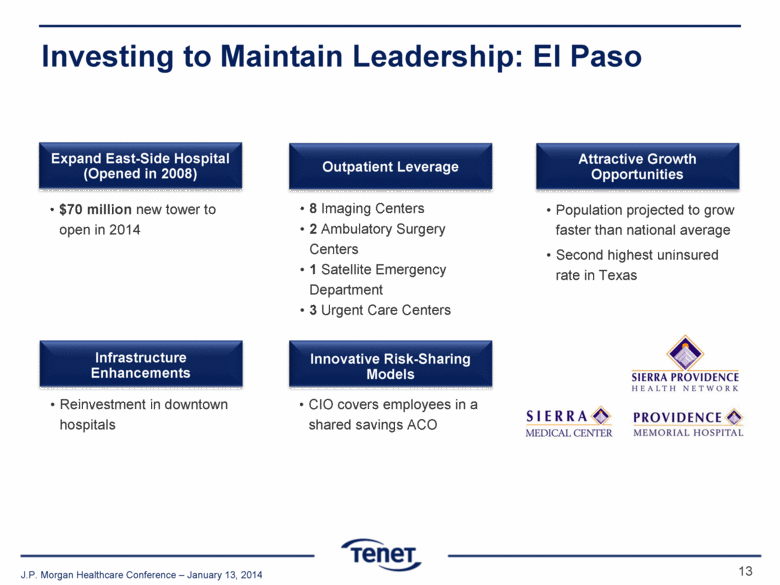Investing in outpatient surgery centers
Post on: 15 Июнь, 2015 No Comment

Hospitals interested in acquiring a surgery center as an investment need to ensure that they protect the center’s main asset – the physicians
Surgery centers can be highly profitable businesses if they attract top physicians, deliver quality care and are efficiently operated.
A report last year by Moody’s Investors Service predicted continued strong revenue growth for surgery centers, noting that they “provide care without the high-cost infrastructures associated with hospitals.” In fact, a number of hospitals are getting into the surgery center business as inpatient surgery cases continue to decline. According to Becker’s Hospital Review. there are anywhere from 5,500 to 5,600 Medicare-certified surgery centers in the U.S. of which 1,400 to 1,700 have a hospital partner. One of the latest examples is Keck Medicine of the University of Southern California, which announced on October 22 that it would partner with Surgical Care Affiliates (SCA) to purchase and co-manage several existing ambulatory surgery centers in the Los Angeles area.
Under terms of the arrangements, the academic medical center and SCA will own 51 percent of the surgical facilities, with physicians owning 49 percent. For hospital CFOs contemplating a surgery center acquisition, there a number of considerations to take into account. The first one, according to Carol Lucas, chair of the healthcare practice group for law firm Buchalter Nemer, is to determine your motivation.
“If I were advising you, I’d ask why you wanted to buy a surgery center,” Lucas said. “There are different reasons that hospitals invest in surgery centers.”
One reason is purely functional: The hospitals need more operating room space.
“Either their existing ORs in the hospital are at capacity or they have a significant enough patient population that would rather do a procedure on an outpatient basis,” she said. “So they just want to own a surgery center because it’s part of the service they offer.”
A second motivation for hospitals to acquire surgery centers is financial. “You might want to buy a surgery center as an investment,” Lucas said. For those hospitals, she said, “There is nothing as important as the physicians who use your center. Unless you’re just looking for a facility, 100 percent of the game in the surgery center business is to have the hearts and minds of the physicians who want to use your center.” Hospitals merely looking to expand OR facilities should focus on the size and physical condition of the surgery center, as well as its location.
“A hospital CFO needs to make sure the surgery center has sufficient capacity to meet any anticipated needs,” she said. “They want to make sure the configuration of the space is suitable for the surgeries physicians want to perform in the center. Are there sufficient procedure rooms? Is there enough recovery space? You also want the surgery center to be well-equipped and recently built. Otherwise you’re looking at a lot of maintenance.”
If the prospective surgery center is intended to serve the hospital’s existing client base, it needs to be conveniently located, Lucas says. Hospital CFOs also “need to make sure the surgery center has all appropriate licenses and permits and everything else.” But hospitals interested in acquiring a surgery center as an investment need to ensure that they protect the center’s main asset – the physicians who already treat patients there. And they do that by giving the physicians a reason to stick around.
“A lot of times what a hospital will want to do, especially to build bridges and maintain relationships with the physicians in their community, is partner with the physicians to build or acquire a surgery center,” Lucas said.
The goal is to create a win-win situation.
“You can buy 51 percent of the surgery center, and the physicians stay in for 49 percent,” Lucas said. “That’s important because if you buy 100 percent of a surgery center from a group of physicians, they’ll just go to another surgery center where they can be owners.” Lucas cites the USC-SCA deal as typical of this kind of deal, which can give the owning physicians an excellent buyout while preserving equity in the center and providing them with numerous benefits.
“All of a sudden the physicians have access to your excellent managed care contract because you’re a large entity with a lot of bargaining power,” Lucas said. “The hospital also might have a better billing system. And the hospital can offer a highly trained and experienced administrative staff, which is important because not all physicians are born business people.”
While this kind of partnership creates a “no-lose position” for the physicians with ownership in the surgery center, a hospital CFO “needs to make sure they really will be loyal to this center after the closing,” she said.
“That means determining if the physicians own other surgery centers as well as whether your non-compete agreements are enforceable,” Lucas noted. “Because the last thing the CFO wants to do is pay a large amount of cash to buy half of a surgery center only to have the physicians, even if they don’t literally leave, to sort of emotionally leave and start using other centers. You need to do a fair amount of work getting comfortable with your physicians.”
Show All Comments














